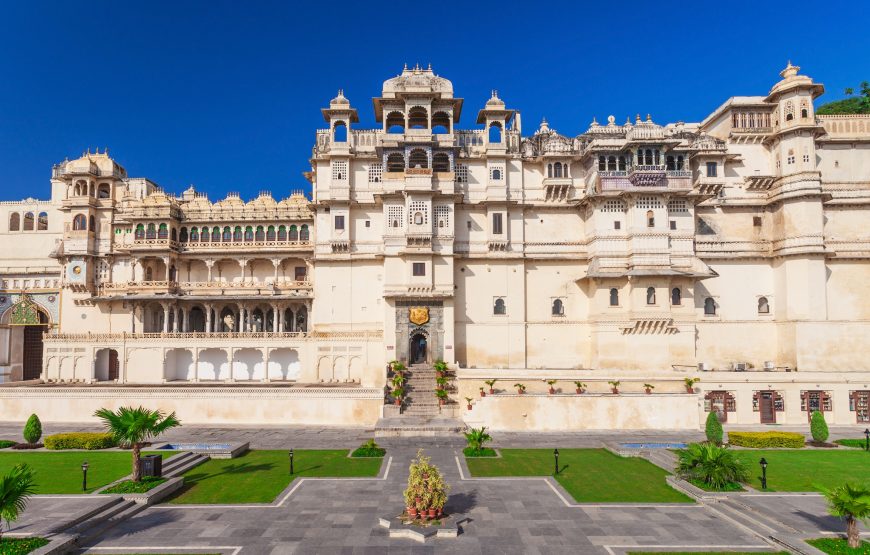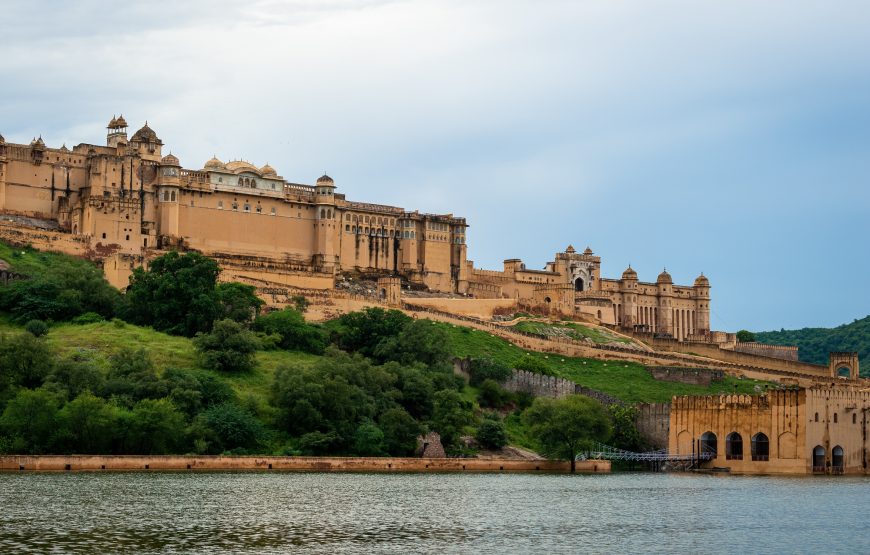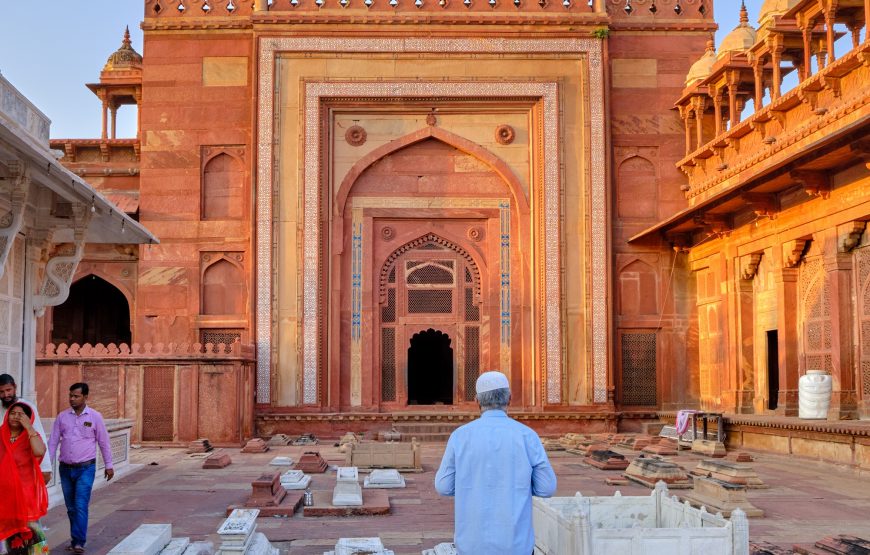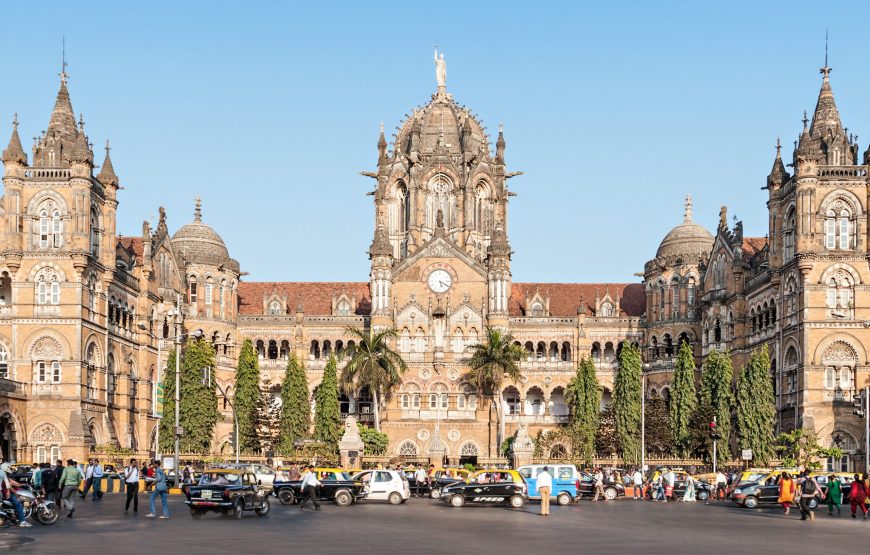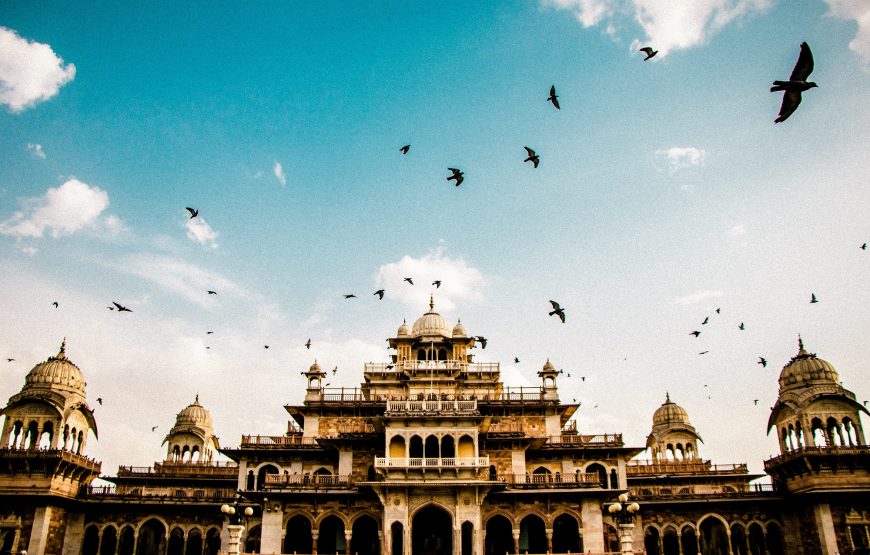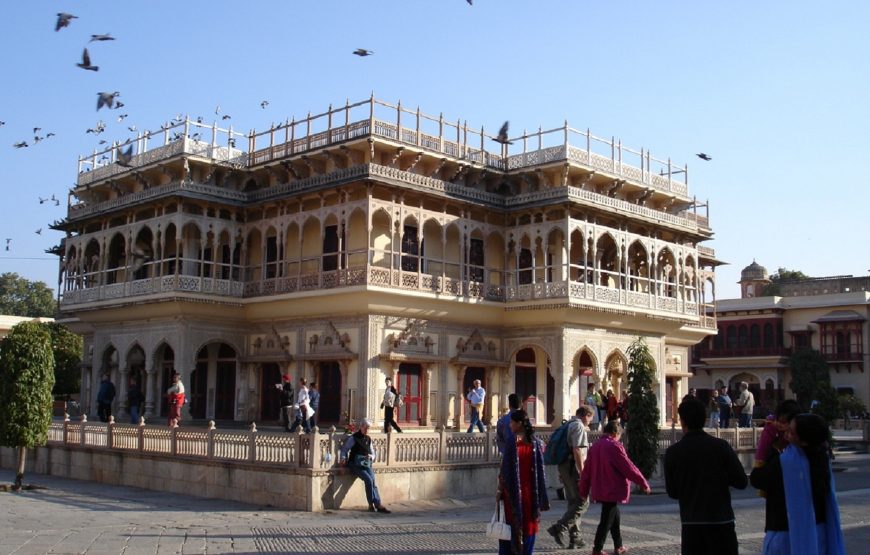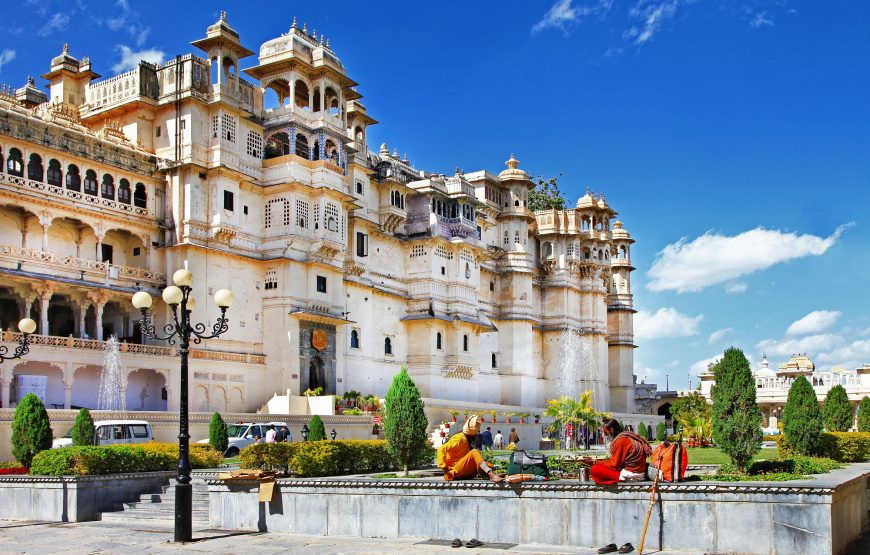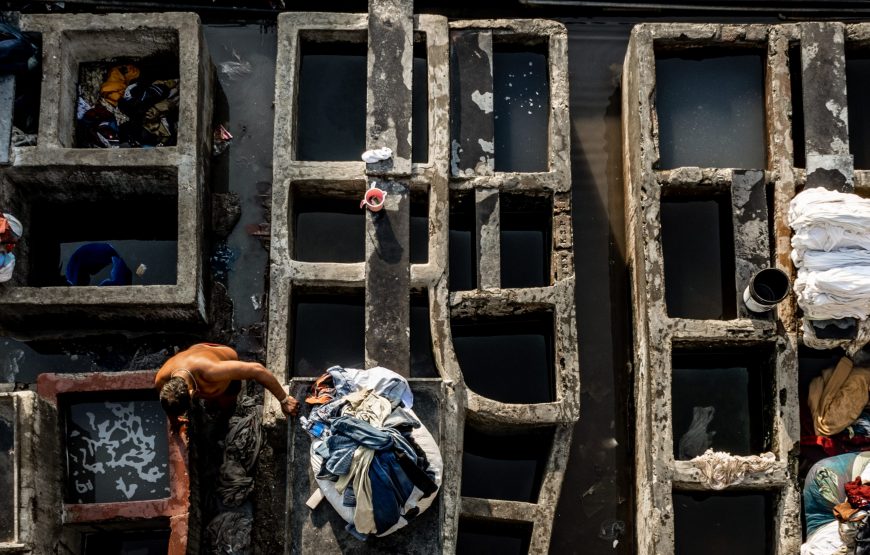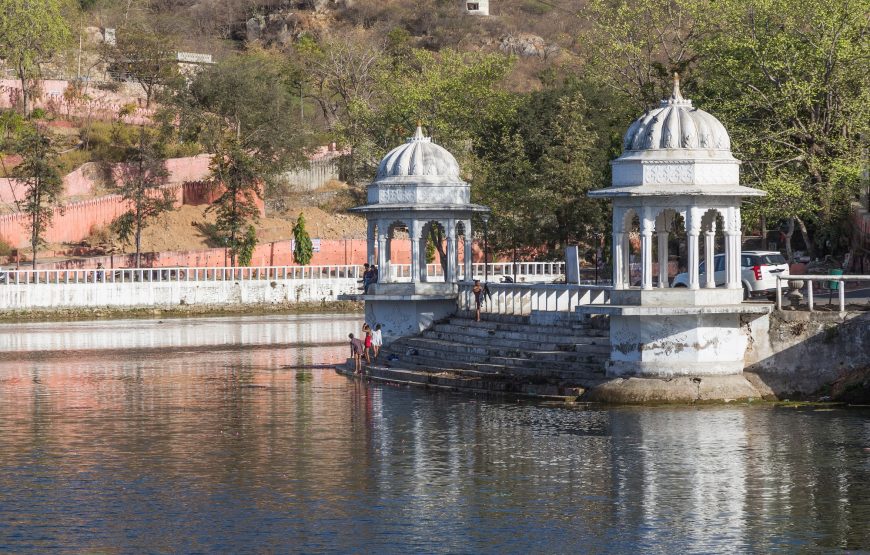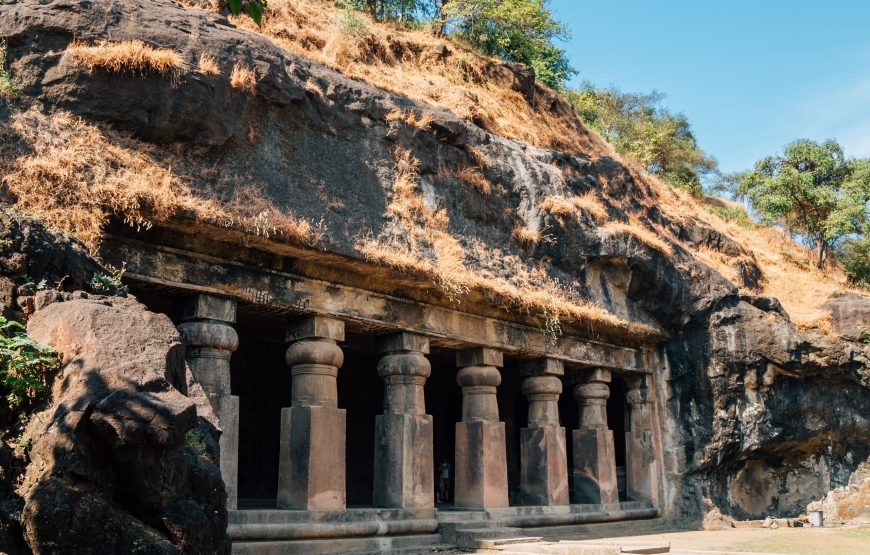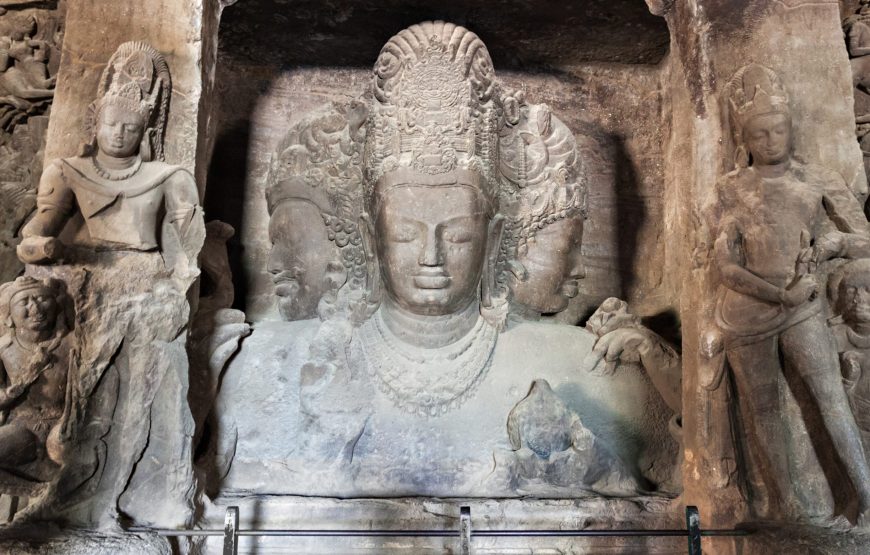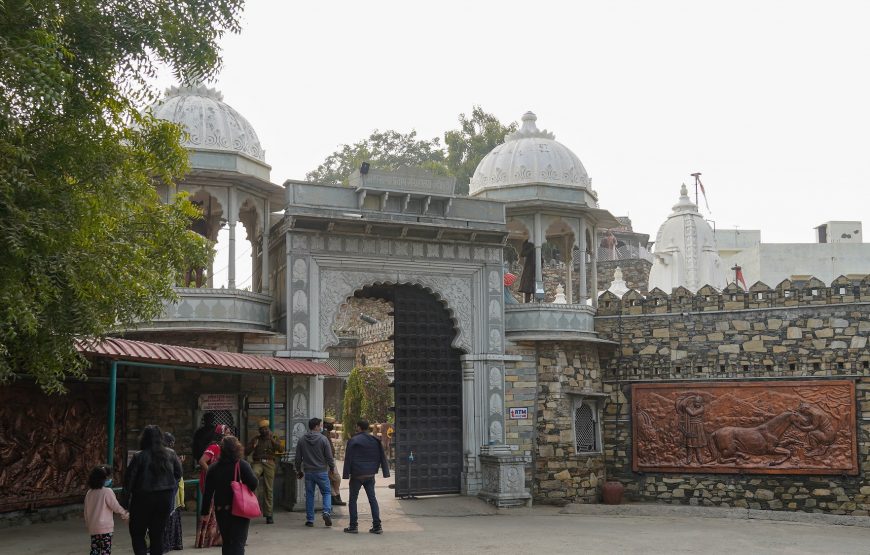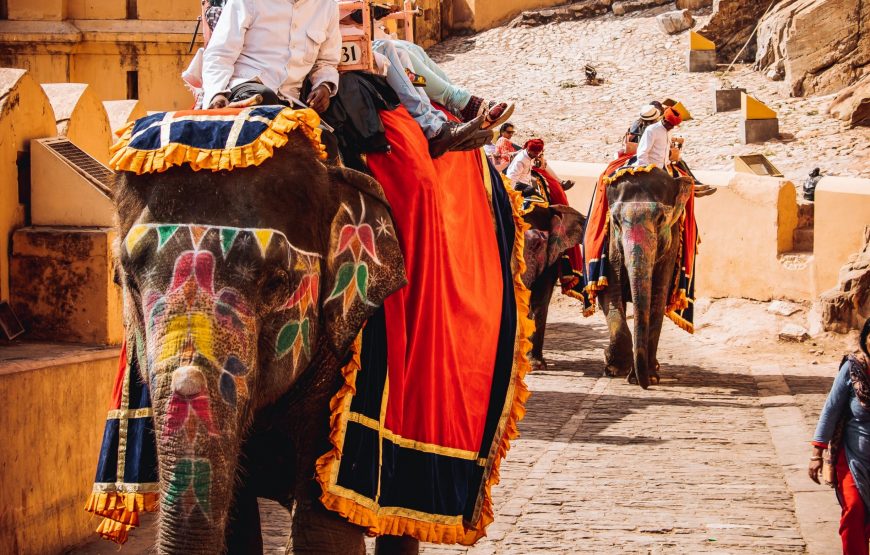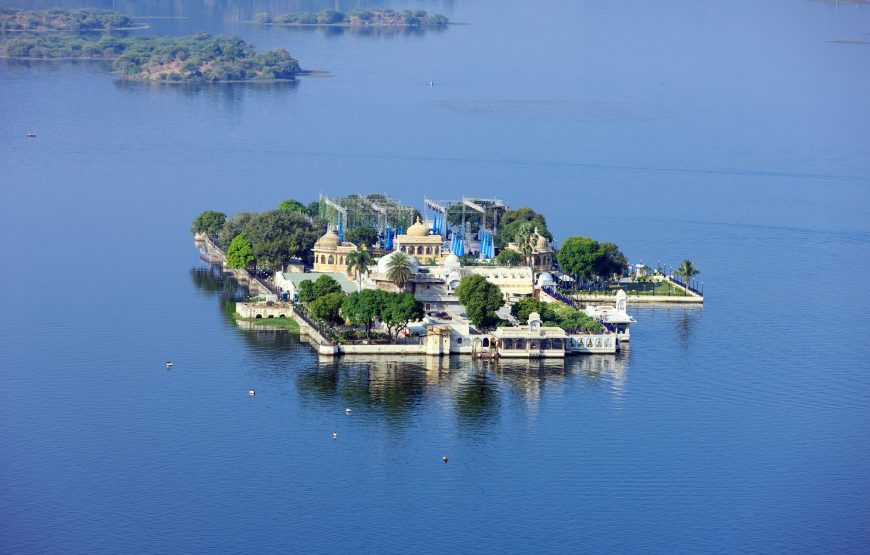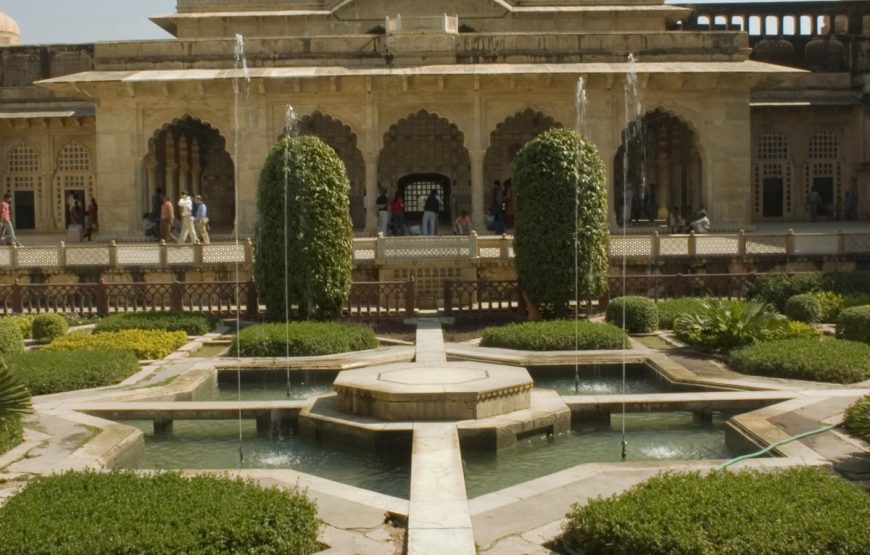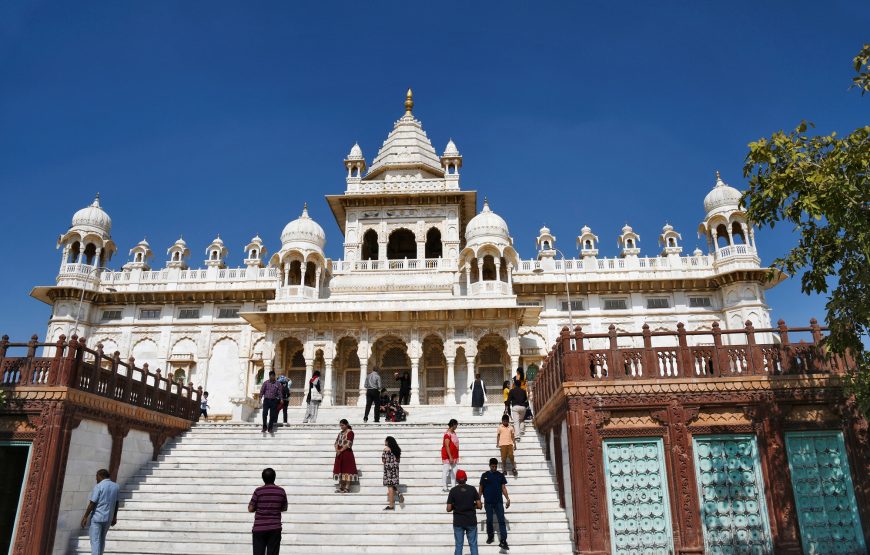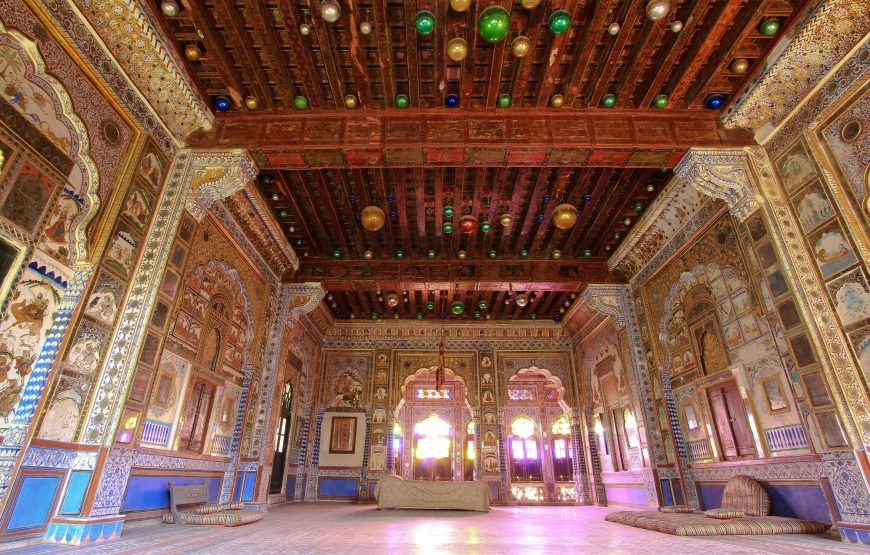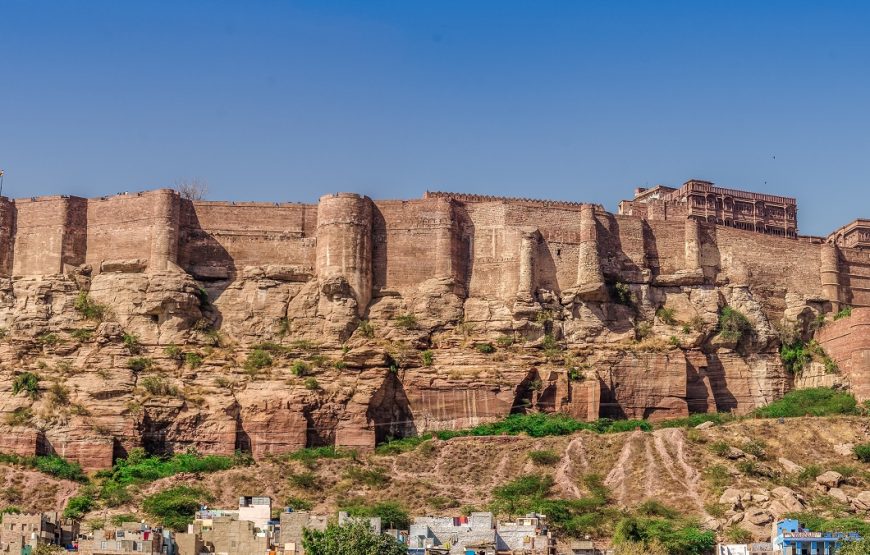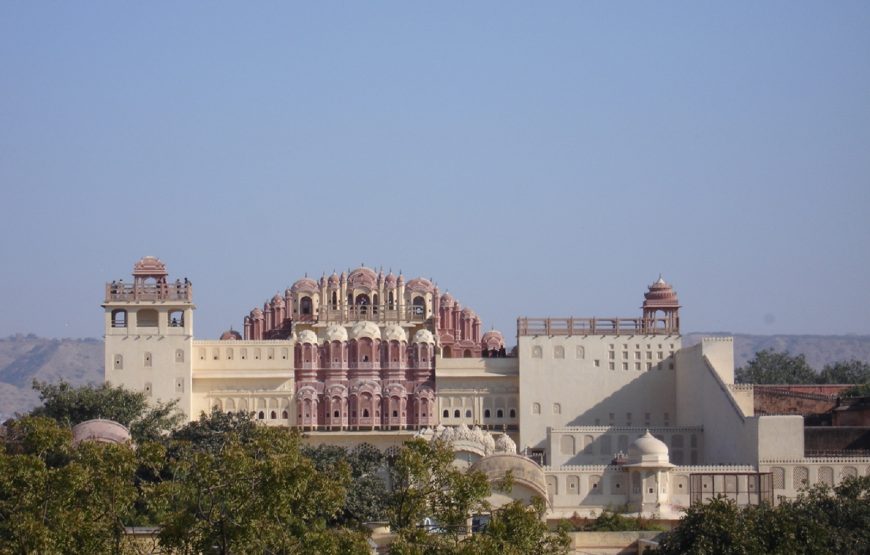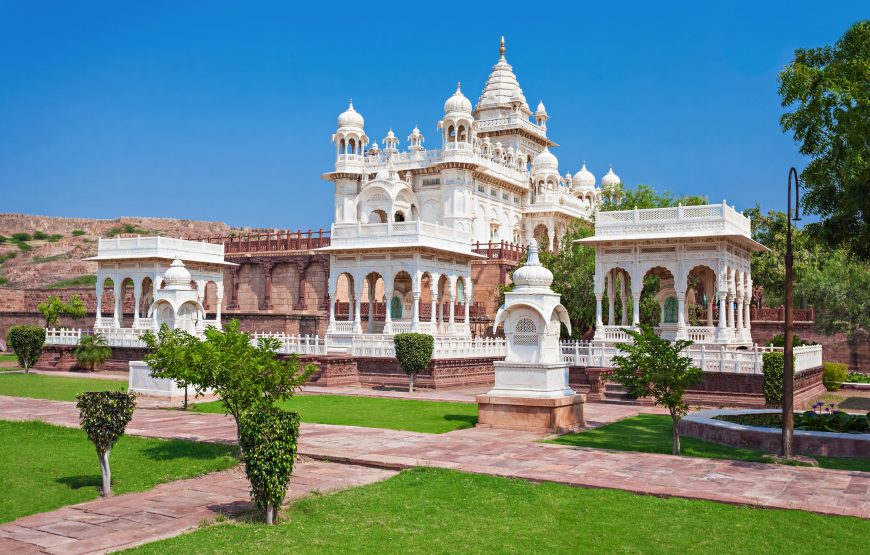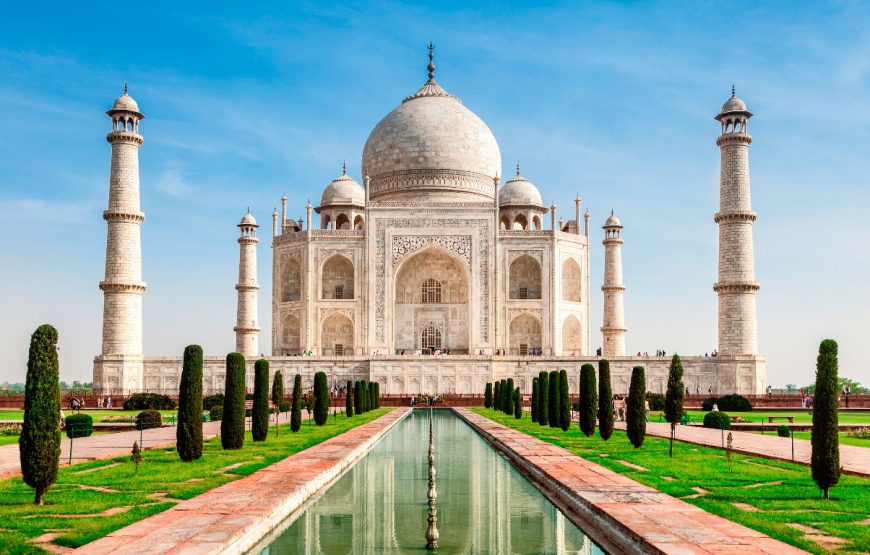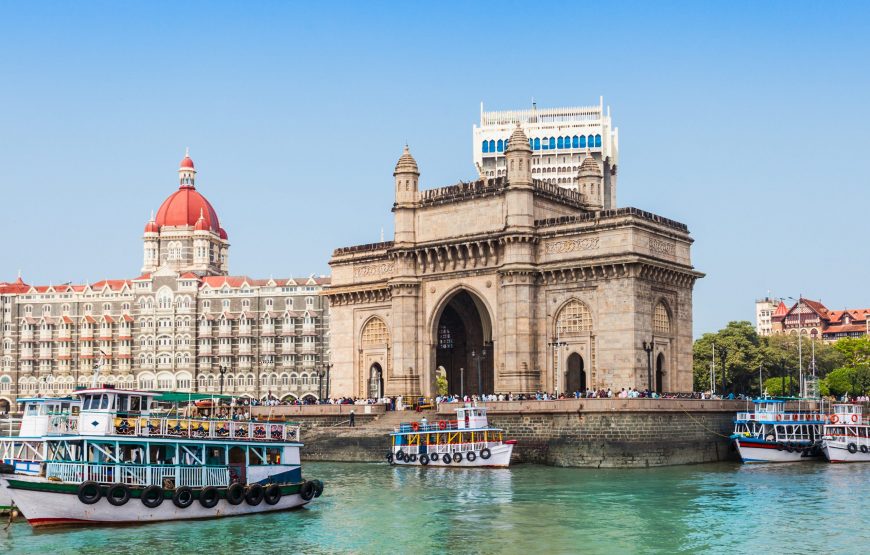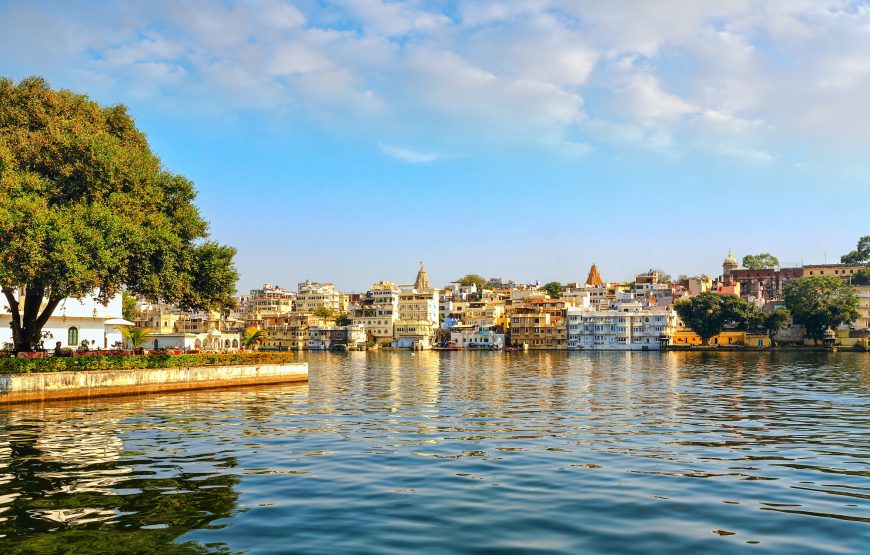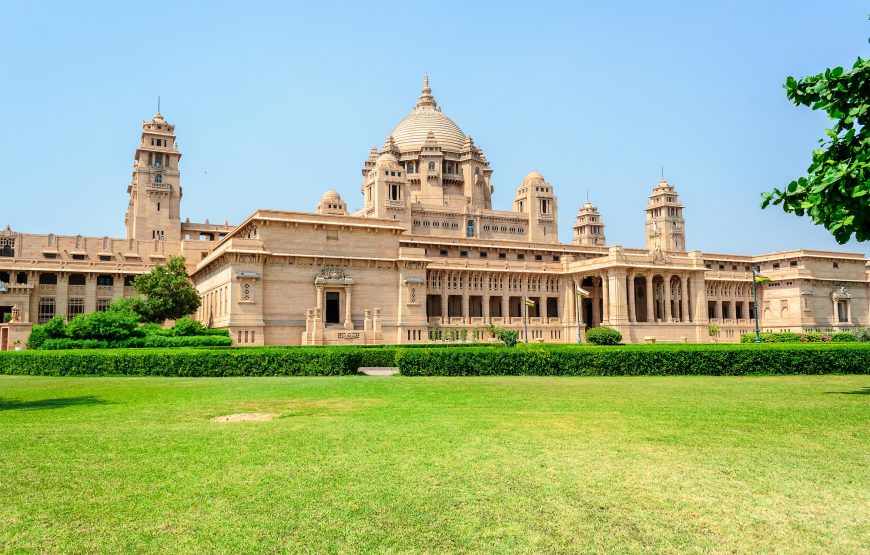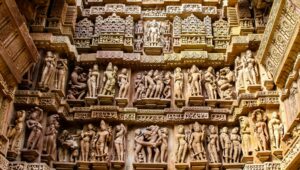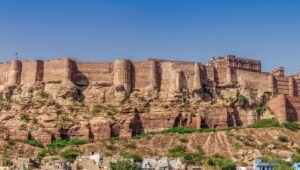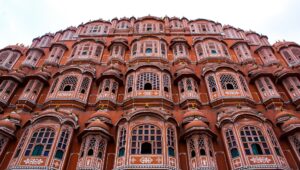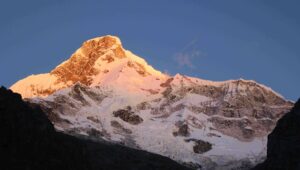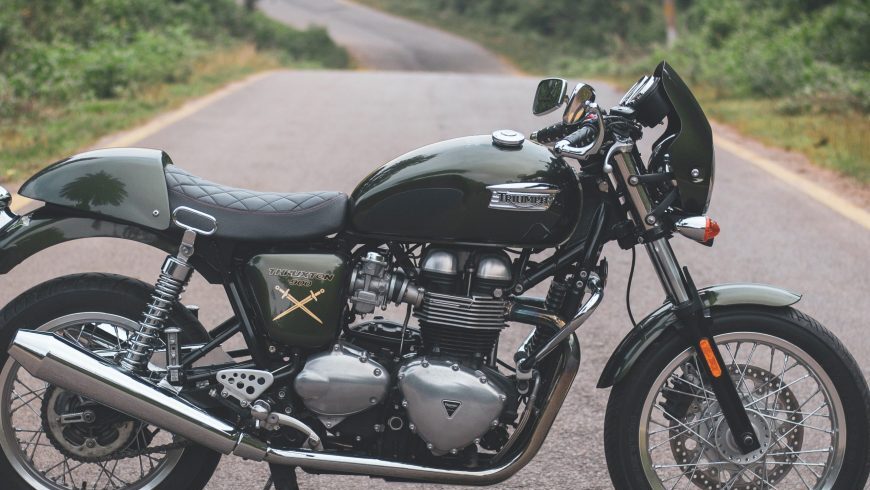Overview
Enjoy a 16-day trip to the most amazing places in India including Delhi, Agra, Rajasthan, Aurangabad, and Mumbai. See monuments such as Red Fort, Qutub Minar, India Gate, and Lotus Temple in Delhi. Visit Agra and stop by Taj Mahal, Agra Fort, and Fatehpur Sikri. Explore the state of Rajasthan by visiting Jaipur, Jaisalmer, Jodhpur, Pushkar, and Udaipur. Head to Aurangabad to see the beautiful Ellora Caves. Fly to Mumbai and go to the famous attractions like Gateway of India, Chattrapati Shivaji Terminal, Marine Drive, and many more such places.
Itinerary
Arrive in Delhi, and from airport transfer to the hotel.
Relax and enjoy personal activities.
Visit the Red Fort Shah Jahan constructed Red Fort in 1939, and it was the main residence of the Mughal Dynasty. It is located in the city center. It is made from red sandstone, and that is where it gets its name from. It became a UNESCO World Heritage Site in 2007.
See Qutub Minar, which is a five-story tapering tower with a height of 73 meters. The spiral staircase in this minaret has 379 staircases. It is a UNESCO World Heritage Site and visited by many every day.
Go to India Gate; it is a war memorial located near the Rajpath. It is dedicated to the soldiers of British India who died in the wars. The India Gate, even though a war memorial, evokes the architectural style.
Head to the Lotus Temple, famous for its flower-like shape; Lotus Temple is a house of worship and open to all. Winning numerous awards, this place is a prominent attraction for all.
Stop by Raj Ghat, a memorial dedicated to Mahatama Gandi; Raj Ghat is situated in Delhi. It is a black marble open to the sky and a flame that eternal burns at one end. It is a great place to learn more about the history of the country.
Continue to Jama Masjid, one of the largest mosques in the country; Jama Masjid is made up of red sandstone and marble. It was constructed by Shah Jahan and is visited by hundreds of people every day. The mosque's courtyard can accommodate about 25,000 people and be built for about one million Indian Rupees.
Enter Humayun's Tomb, which is the tomb of the Mughal Emperor Humayun in Delhi, India. The tomb was commissioned by Humayun's first wife and chief consort, Empress Bega Begum, in 1558 and designed by Mirak Mirza Ghiyas and his son, Sayyid Muhammad.
Stroll in the streets of Chandni Chowk or take a cycle rickshaw ride in Chandni chowk & Khari Baoli Spice Market, a busy shopping area with markets full of spices, dried fruit, silver jewellery, and vivid saris. In contrast, the narrow side streets are crowded with tiny shops selling essential oils, stationery, and traditional Indian sweets.
Overnight stay in Delhi Hotel.
Visit the Taj Mahal, an ivory-white marble mausoleum on the southern bank of the river Yamuna in the Indian city of Agra. It was commissioned in 1632 by the Mughal emperor Shah Jahan to house the tomb of his favourite wife, Mumtaz Mahal; it also houses the tomb of Shah Jahan himself.
Head to Agra Fort, a historical fort in the city of Agra in India. It was the main residence of the emperors of the Mughal Dynasty until 1638 when the capital was shifted from Agra to Delhi. Before capture by the British, the last Indian rulers to have occupied it were the Marathas.
In the evening, visit old Agra Market.
Overnight stay at Agra hotel.
Visit Fatehpur Sikri, a small city in northern India, just west of Agra, founded by a 16th-century Mughal emperor. Red sandstone buildings cluster at their center. Buland Darwaza gate is the entrance to Jama Masjid mosque. Nearby is the marble Tomb of Salim Chishti. Diwan-E-Khas hall has a carved central pillar. Jodha Bais Palace is a mix of Hindu and Mughal styles.
Head to Chand Baori, built during the 8th and 9th centuries and has 3,500 narrow steps arranged in perfect symmetry, which descend 20m to the bottom of the well.
Move to Johari Bazaar, a shopper's paradise and a must-visit, Johari Bazaar in Jaipur have a reputation that precedes itself. Located near Hawa Mahal, this market of exquisite jewellery and artifacts to choose from can immerse shoppers in its glittering glory. It is considered to be one of the oldest markets in Jaipur City.
Overnight stay at Jaipur Hotel.
Visit Amber Fort, situated on the top of the hill. Amber Fort is located in Amer. It was built by Raja Man Singh I. It is known for its artistic elements. The Maota Lake located in front of the monument acts as a source of water for the fort.
Head to the City Palace of Jaipur. Spend one hour to explore Maharaja’s City Palace. City Palace of Jaipur was originally the administrative and ceremonial seat of Maharaja of Jaipur, which was constructed in 1721. It was also the location of religious and cultural events that took place at that time. It now houses the Maharaja Sawai Man Singh II Museum and continues to be the home of the Jaipur royal family.
Head down the hill to Jal Mahal, a palace floating on Man Sagar Lake, for a photo opportunity. Jal Mahal is a palace located in the middle of Man Sagar Lake in the city of Jaipur. The palace and the lake around it were renovated and enlarged in the 18th century by Maharaja Jai Singh II of Amber. The palace and scenic beauty of the lake attract various tourists.
See Jantar Mantar, a UNESCO World Heritage site built in 1734. It is a collection of nineteen architectural astronomical instruments built by the Rajput king Sawai Jai Singh II, the founder of Jaipur. The instruments allow the observation of astronomical positions with the naked eye.
Rest of the time free for leisure.
Overnight stay in Jaipur Hotel.
Visit the Pushkar Brahma Temple and enjoy the walk around the Holy Lake of Pushkar.
Head to the Umaid Bhawan Palace, a fabulous building which is split between the museum and a 5 star. The museum is interesting Attached is a small collection of vintage cars which you can see.
Go to Ghanta Ghar or the Clock Tower, a prominent landmark in Jodhpur; it was built by Maharaja Sardar Singh between 1880 and 1911.
Overnight stay in Jodhpur Hotel.
Go to Sam Sand Dunes for an evening jeep safari and Camel Safari in the desert. Witness the unparalleled views of the sunset over the tall sand dunes located at a distance of 40 km from the Golden City of Jaisalmer. Enjoy the music and dance performances by local artists which hold a mirror to the rich culture of Rajasthan.
Overnight stay in Desert Camp.Day 8 : Leave Sam Sand Duns for Jaisalmer City
Visit Jaisalmer Fort, situated in the city of Jaisalmer. It is believed to be one of the very few "living forts" globally, as nearly one-fourth of the old city's population still resides within the fort. For the better part of its 800-year history, the fort was the city of Jaisalmer.
Head to Nathmalji ki Haveli, constructed by Maharawal Berisal in 1885 CE, to serve as the residence of Diwan Mohata Nathmal, the then Prime Minister of Jaisalmer. The chief architects of this haveli were two brothers, named Hathi and Lulu. There is a fascinating story regarding its construction. It is believed that both the brothers started building the facets of the haveli simultaneously. The two sides are similar but not identical.
Move to Patwa Havelis, a cluster of five havelis aligned in a narrow lane in the heart of the city. Of the five Havelis, the first haveli in the lane, aka the Kothari’s Patwa Haveli, is not only extraordinarily preserved and restored but is also open to visitors to experience the lifestyle of the erstwhile patwas.
See Salim Singh Ki Haveli, an architecturally notable residence built-in 1815 with a peacock-shaped roof & numerous balconies.
Go to Bada Bagh, also called Barabagh, is a garden complex located about six kilometres north of Jaisalmer. Overlooking a mango grove sits a set of royal chhatri cenotaphs constructed by the Maharajas of the Jaisalmer State in the 18th, 19th, and early 20th centuries.
Stop by Gadi Sagar Lake, originally was a human-made reservoir that was founded to provide a source of water to Jaisalmer. Founded in 1367 by the first ruler of the city Maharawal Jaisal, this reservoir was revamped by Maharawal Garsi Singh.
Visit market by own self.
Overnight stay at Jaisalmer hotel.
Visit the Mehrangarh Fort, the 5 km long majestic fort on 125 m high hill is one of the most impressive & formidable structures. Although invincible from the outside, the fort has four gates approached by a winding road. Within the fort are some magnificent palaces with marvellously carved panels, latticed windows, and evocative names.
Head to Moti Mahal, Phool Mahal, Sheesh Mahal, Sileh Khana & Daulat Khana. These Palaces house a fabulous collection of trappings of Indian royalty, including a superb collection of palanquins, elephant howdahs, miniature paintings of various schools, musical instruments, costumes.
See Jaswant Thada, the imposing white marble memorial that marks the site of the royal crematorium. It houses portraits of successive rulers. The four cenotaphs around here commemorate notable acts of bravery and generosity of the four successive rulers.
Over-night stay at Jodhpur hotel.
Have breakfast at the hotel and drive to Udaipur; en-route, visit Ranakpur Jain Temple.
Enter the Ranakpur Temple, a complex comprised of 1444 intricately carved pillars, 24 pillared halls accompanied by 80 domes borne by 400 columns.
Stop by Lake Pichola, and in the evening, check-in at Udaipur Hotel.
Enjoy a boat cruise on Lake Pichola, see the ghats along the lake and the interesting buildings on the banks. The view of the city palace from the lake is spectacular.
Visit the City Palace, a palace complex situated in the city of Udaipur. It was built over a period of nearly 400 years, with contributions from several rulers of the Mewar dynasty.
Head to Saheliyon Ki Bari, which was laid for a group of forty-eight maidens. This garden is located on the banks of the Fateh Sagar Lake, presenting a green retreat in the drylands of Rajasthan. It was built from 1710 to 1734 by Maharana Sangram Singh for the royal ladies.
Go to Bagore Ki Haveli and in the evening watch "Dharohar" folk dance show at Bagore-ki-Haveli. A gorgeous 18th-century haveli that has been converted into a museum showcasing Mewar art and architecture. The haveli puts on one of the best Rajasthani folk dance shows in Rajasthan. For an hour, performers dance to Rajasthani folk music wearing bright coloured ethnic dresses. The dances are varied and demonstrate the tradition and culture of Rajasthani folklore.
Overnight stay in Udaipur Hotel.
After breakfast, the guests will be dropped at Udaipur Airport for Aurangabad.
On arrival at Aurangabad airport, assistance and transfer to hotel.
After breakfast at the hotel, visit Ellora, a UNESCO World Heritage site (Tuesday closed). It houses 34 monasteries and temples with some exclusive, uninterrupted monuments that date back from 600 to 1000 AD. The temples of Ellora are dedicated to Brahmanism, Jainism, and Buddhism. It also has some excellent stonework depicting the legends related to Lord Shiva.
On the way back to Daulatabad Fort, see the most powerful forts of the medieval Deccan. The defence system that made Daulatabad virtually impregnable comprises fortifications with double and even triple rows of massive walls.
Head to Bibi ka Maqbara Built by Azam Shah in 1678; the Bibi ka Maqbara is a son's loving tribute to his mother. Due to its similar design standing spectacularly on the lawns of the landscaped garden with ponds, fountains, and water channels, the white marbled monument is popularly known as the Mini Taj of the Deccan.
Return to hotel in Aurangabad for overnight stay.
Visit Ajanta Caves, which are approximately 30 rock-cut Buddhist cave monuments from the 2nd century BCE to about 480 CE in Aurangabad. The caves include paintings and rock-cut sculptures described as among the finest surviving examples of ancient Indian art, particularly expressive paintings that present emotions through gesture, pose, and form. It is also a UNESCO World Heritage Site.
Head to Aurangabad Caves, situated at a distance of 5 km, nestled amidst the hills are 12 Buddhist caves dating back to 3 A.D. Of particular interest are the Tantric influences evident in the iconography and architectural designs of the caves. Also, visit a small archaeological museum.
In the late evening, guests will be drop to Aurangabad Railway Station, Airport or Bus Stand.
Take a train, flight, or bus for Mumbai.
In the morning, guests will be picked up from Mumbai Railway Station and transfer to the hotel.
Visit Marine Drive, a lovely pedestrianised path to walk along the coast. It provides great views of Mumbai sky scrapers as well as the sunset. There are points marked in the concrete to show the distances. This area is known as the Queen's Necklace as when viewed from an elevated point it resembles pearls in a necklace.
Head to Gateway of India, one of Mumbai’s prime tourist sites, The Gateway of India Mumbai is an impressive symbol of the city.
See the Dhobi Ghat, an amazing open-air manual ancient laundry . You can view it from above on a viewing platform.
Go to Bandra-Worli Sea Link, a very beautiful bridge that links Mumbai’s suburbs to South Mumbai. It’s a very prestigious bridge which was opened in 2009.
Move to Chhatrapati Shivaji Terminus, a UNESCO world heritage site and it is India's most beautiful railway station and a masterpiece of Gothic architecture with stained-glass windows, towering spires, domed arches, and buttresses and pillars with animal images carved into them.
Enter the Bandra Fort, which is located beyond Taj Lands End. Bandra offers breathtaking views of the Sea link just enjoy the skyline towards South Bombay!
See famous Bollywood celebrities homes in a drive past.
Over night stay at Mumbai hotel.
Drop off at Mumbai Airport, Mumbai Railway Station, or on a desirable location in Mumbai.
Include
- Breakfast
- Private Air-Condition Transport
- Camel Safari
- Jeep Safari
- 1 night in Desert Stay with Gala Dinner
- Hotel Accommodation
- Pick up & Drop
- Sight Seen
- Toll Tax, Parking & Fuel etc.
Excludes
- Lunch/Dinner
- Any type of monuments charges
- Any type of drinks
- Any type of personal Expenses
- Udaipur To Aurangabad flight ticket
